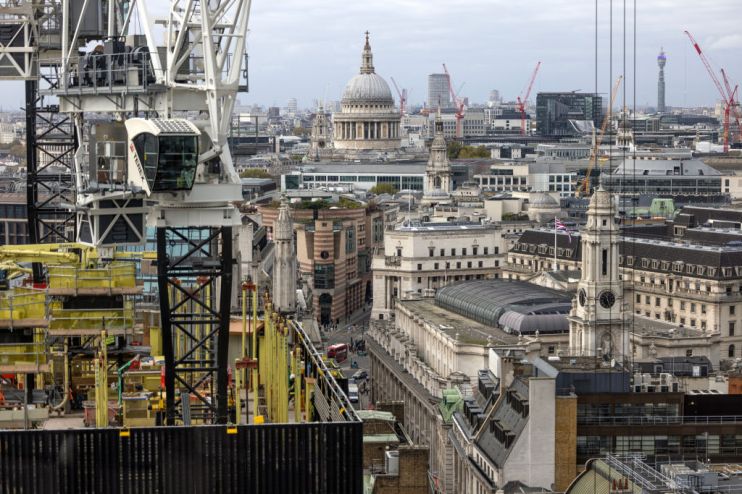Greater investment than predicted as UK economy grows by just 0.1 per cent

The UK economy grew marginally over the first quarter of the year, driven by increases within the services sector, according to official data.
UK gross domestic product (GDP) edged up by 0.1% between January and March, the Office for National Statistics (ONS) said.
The ONS had already indicated growth of 0.1% in May, but on Friday it confirmed the figure in its more thorough report.
The biggest driver of overall growth came from the information and communications industry, which grew by 1.3%, with increases in computer programming, consultancy work and telecommunications, the data revealed.
But the buoyant sector was partially offset by declines in health, transport and storage, education, and public administration and defence, which all saw workers walk out during industrial action through the month.
The confirmed first quarter figures come after the economy grew by 0.2% in April, after a 0.3% fall in March, further easing fears that the UK may have avoided a recession.
The ONS’s director of economic statistics, Darren Morgan, said: “Our revised data also show higher levels of business investment than initially estimated, with many firms taking advantage of the Super Deduction Corporation Tax allowance, before it ended.
“Household saving remained strong at a headline level, driven almost entirely by income earned by their pension funds.
“Households took money out of their savings accounts at a record level while the amount of new mortgage and re-mortgage borrowing fell.”
Danni Hewson, head of financial analysis at AJ Bell said “there’s nothing particularly surprising to be learnt from this set of figures.
“The UK has limped through the first few months of the year thanks to a surprisingly resilient consumer market and what is likely to have been a rush by businesses to make the most of generous tax breaks on investment before they came to an end.
“But warning signs are already flashing madly, with household disposable income further eroded by the constant pain of price rises and fewer people with the ability to put a bit away for a rainy day or take advantage of the interest rate hikes which are causing such misery for so many.
“With hundreds of thousands of mortgage holders about to be clobbered by increased monthly payments there’s little doubt the service sector is in for a rough ride.
“And despite April’s positive update May’s additional bank holiday is expected to have dragged growth down considerably, so it will be the current month’s performance that economists, politicians and businesses will really be concerned with.
“Our high street retailers suggest that wage increases have helped offset the erosion of living standards to a great degree, but many households are clinging on by their fingernails and an extra bill or mortgage upset is expected to turn things on its head for lots of families.
“Any growth is good but remember this growth still leaves the UK economy struggling to make up the ground it
Anna Wise – PA
